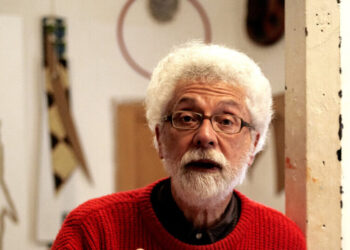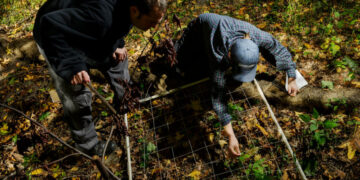MAGA Mouthpieces Turn on Trump Over Iran War
The rise of Donald Trump helped bring far-right fringe voices into the mainstream. Now, some of them are trying to...
Low-rise jeans and exposed midriffs are back. Denim brands are ready to cash in.
Attention, millennials: Low-rise jeans are back in style. Andrea Cremascoli/GC ImagesLow-rise jeans are making comeback as brands like Lucky Brand...
A Danish Designer Explores Color for the Soul and the Senses
For much of her adult life, Margrethe Odgaard has been on a vision quest. Over the years, the Danish designer...
Dinner Has Always Been a Problem
This is an edition of Time-Travel Thursdays, a journey through The Atlantic’s archives to contextualize the present. Sign up here....
What Else Is Happening During TEFAF Maastricht
Beyond TEFAF Maastricht and its vast array of treasures, there are intriguing exhibitions and tours just a few hours away...
These 3 Midwest Emo Albums Are Now Old Enough to Buy Their Own Cigarettes
Can you believe it’s been 21 years since 2005? That means the following Midwest emo albums can now head down...
Rising Young MAGA Stars Joked About Killing Black People
A group of young Republicans ran a group chat in which they used racial slurs like punctuation and came up...
At TEFAF Maastricht, a Paris Gallery Honors a Revolutionary French Painter
In the summer of 1970, right before they started calling themselves the Supports/Surfaces group, several French painters decided to take...
The Anthropic–OpenAI feud and their Pentagon dispute expose a deeper problem with AI safety
Welcome to Eye on AI, with AI reporter Sharon Goldman. In this edition: Trump has an AI data center problem...
Mamdani to Close Huge Homeless Shelter Next to Bellevue Hospital
New York City’s hulking homeless shelter in the former Bellevue psychiatric hospital, which for decades has served as the first...














